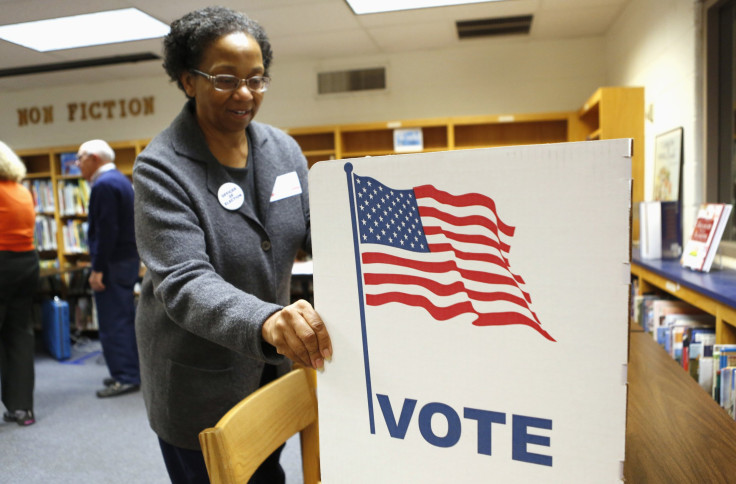Poll Finds Democratic Support For Allowing Undocumented Immigrants To Vote

As the Obama administration gears up to defend the president’s executive action shielding up to 4 million undocumented immigrants from deportation, a new poll finds that a slim majority of Democrats supports giving voting rights to some undocumented immigrants in the U.S.
According to a recent Rasmussen Reports telephone survey, 53 percent of Democrat respondents said undocumented immigrants who pay taxes and can prove they live in the Unite States should be allowed to vote. Only 21 percent of Republican respondents agreed. Overall, 35 percent of the total pool of 952 people surveyed said undocumented immigrants should be able to vote under those circumstances. The survey had a margin of error of 3 percentage points.
The poll comes as the Supreme Court decided this week to take on a case over how people ineligible to vote -- including undocumented immigrants -- should factor into the way officials draw legislative district lines. The plaintiffs, two voters in Texas, said dividing districts according to total population and not by population of eligible voters, weakened their constitutional rights to equal representation.
The Rasmussen survey included a question on drawing legislative districts: 66 percent of respondents said states should count only eligible voters in drawing district lines, and 22 percent said they should count total populations, including undocumented immigrants.
Despite the poll results, noncitizens are still a long way from getting full voting rights in the U.S., particularly for federal elections. The Board of Immigration Appeals, the U.S.’s top immigration court, ruled this week that immigrants who voted in a federal election can be deported, even if they were unware that it was illegal.
However, some immigrants have limited voting rights in some districts. Takoma Park, Maryland, for example, began allowing noncitizens to vote in municipal elections in 1991. Residents approved that policy by referendum after city officials fought over questions of population counting and district lines -- the same issues the Supreme Court will be hearing in its next term.
Lawmakers in Washington, D.C., previously introduced legislation to grant noncitizens voting rights in municipal elections, but those initiatives did not survive. New York’s city council is also reportedly drafting a bill to let noncitizens -- which make up 21 percent of New York’s voting age population -- participate in local elections.
© Copyright IBTimes 2025. All rights reserved.






















